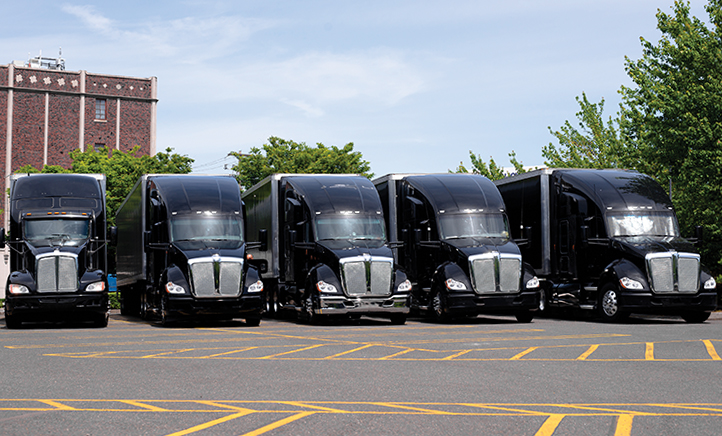Starting up your own trucking business with your own authority is a big step that adds complexity to your business. Growing your business from a single truck to multiple units adds even more complexity. The management side of the business changes — you now need to provide payroll, insurance and other services for the people who drive for you.
One important change you may need to make is your relationship with the Federal Motor Carrier Safety Administration (FMCSA) Drug and Alcohol Clearinghouse. You may have already registered yourself as a driver; this allows any carriers you drive for to run preemployment and annual queries of your record at the Clearinghouse. Depending on your business model, you may now also need to register as an employer.
Whether or not you need to register as an employer hinges on whether you operate under your own authority, using your own Department of Transportation (DOT) number, or under the authority of another carrier. If you’re going it alone, you’ll need to register as an employer, even if you’re the sole driver. If you’re leasing your equipment to another carrier, the employer functions of the Clearinghouse may be handled for you by the carrier, but you’ll need to make sure.
Some consortium services are registered with the Clearinghouse and can help handle your registration for you. It’s important to be clear on exactly what services are offered. Carriers have, in the past, failed DOT audits because they incorrectly assumed the consortium they used was performing Clearinghouse duties.
While a consortium can conduct a query for you, it can’t purchase a query plan. Before you (or the consortium) can run a query, you’ll need to pay in advance for the number of queries you expect to use in a year. Currently, the cost is $1.25 per query.
If you need to register as an employer, go online to clearinghouse.fmcsa.dot.gov and click the “Register” button. You’ll need to have an account set up on login.gov to register. If you have previously registered as a driver, you may already have a login.
You’ll need to designate a “Clearinghouse administrator” for your company. If your spouse or someone else handles the paperwork, it can be that person, or it can be yourself. The administrator is the person who makes queries of records and receives the results.
You’ll also need to specify the drug and alcohol consortium or third-party administration (C/TPA). If you are leased to a carrier, you and any drivers you hire may be included in the list of names they draw from for random drug and alcohol testing. If you run as your own company and are the only driver, however, you can’t “randomly” draw names from a list of one. A consortium allows your name to be placed in a pool with the names of other drivers and owner-operators to create a large enough group to draw from.
Once registered, you’ll need to run queries on any new drivers you hire before they can drive. You’ll also need to run annual queries on every person who drives for you. These queries must be maintained in a file that can be easily accessed by you if your business is audited by the DOT.
There are two types of queries — limited and full. Limited queries only tell you if information exists in a driver’s Clearinghouse record. Full queries provide detailed information about violations contained in the record. The cost for either query is the same, $1.25. The biggest difference, however, is the type of driver consent you’ll need to obtain results.
For a limited query, you can simply have the driver or applicant sign a consent form that’s kept in your files. The FMCSA provides a sample consent form, but as written, it’s good for only one limited query. You can add a certain number of queries or specify how long the consent is good for — for example, until termination of employment.
If the limited query indicates that information exists in the Clearinghouse database for that driver, you can then order a full query at no additional charge.
Full queries require the driver to register with the Clearinghouse and provide consent electronically. You’ll need a full query for every new driver. If the driver hasn’t registered with the Clearinghouse, he or she will need to do so, a process that can delay the hiring process. For this reason, some carriers have requested an exception to the Federal Motor Carrier Safety Regulations (FMCSRs) to allow them to order limited queries for new drivers, following up with a full query only if a record is indicated.
Full queries disclose whether the driver has tested positive for controlled substances or alcohol or refused to test. If the driver has completed a return-to-duty program and can now legally perform safety-sensitive functions, that information will be provided, too.
If a driver you employ tests positive for drugs or alcohol, he or she must complete a return-to-duty program before driving again. The program must be administered by a substance abuse professional (SAP) who is registered with the Clearinghouse. It is your responsibility to provide the employee with a list of SAPs, even if you intend to fire the driver; however, you aren’t required to pay for the treatment or follow-up testing. You can obtain a list of SAPs at saplist.com/find-a-sap.
The return-to-duty program requires the driver to meet face-to-face with the SAP and to follow the recommended treatment plan, including return-to-duty drug or alcohol screens. There will also be follow-up testing that will occur once the driver is back at work. It’s important to note that if you hire a driver who is subject to follow-up testing, you’ll be responsible for making sure it is done in accordance with the SAP plan.
Compliance with drug and alcohol requirements might satisfy the regulations, but there’s a liability side to the issue, too. Imagine what could happen if a driver you hired was involved in a serious accident and it was discovered that the driver had not been tested or, worse, had tested positive but did not complete the return-to-duty process.
Operating a trucking business requires knowledge beyond what most drivers are familiar with. By making sure you understand your responsibilities under the Drug and Alcohol Clearinghouse, you can help your business remain in compliance and protect yourself from liability.
Cliff Abbott is an experienced commercial vehicle driver and owner-operator who still holds a CDL in his home state of Alabama. In nearly 40 years in trucking, he’s been an instructor and trainer and has managed safety and recruiting operations for several carriers. Having never lost his love of the road, Cliff has written a book and hundreds of songs and has been writing for The Trucker for more than a decade.







